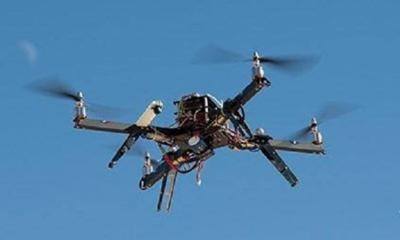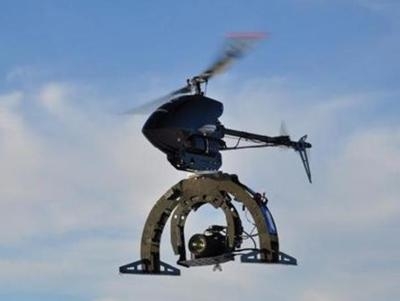Mon, Sep 29, 2014
Association Cautions Manufacturers That Traveling With The Aircraft May Require Special Considerations
As Unmanned Aerial Vehicles – or UAVs – become more commercially available and the list of industries utilizing the technology expands, companies should be aware of the stringent transportation regulations applicable to the lithium ion batteries that power virtually every UAV.

These transportation regulations address the packaging, testing and size limitations (in Watt-hours and kilograms) of lithium ion batteries and UAVs (packed with lithium ion batteries). The rules also specify the number and size (in Watt-hours) of lithium ion batteries that may be carried on aircraft by passengers.
Major companies including Amazon and Google as well as the agriculture, film, journalism, telecommunications and real estate industries are discovering ways to maximize the commercial viability of small unmanned aircraft. UAVS are also being deployed to assist law enforcement in searches for missing persons and by nonprofits in peacekeeping and peacebuilding efforts. Researchers are using the unmanned aircraft to study and save wildlife.
A report by the Association for Unmanned Vehicle Systems International found the industry could create more than 100,000 new jobs and over $80 billion in economic benefits within 10 years after integration of UAVs into the U.S airspace system.

The FAA is expected to announce proposed rules for small commercial drones later this year. However, lithium ion batteries, the engine of the UAVs, are already stringently regulated by the FAA as hazardous materials (also known as "dangerous goods"). The FAA and other transport authorities around the world issue regulations that shippers of UAVs must comply with and that passengers must adhere to when carrying lithium ion batteries onboard an aircraft. Failure to comply with these regulations can result in significant civil penalties levied against companies whose employees are found to be in violation of these regulations.
If a company's employee is traveling with a UAV and spare lithium ion batteries, the U.S. and international hazardous materials regulations strictly prohibit spare lithium ion batteries from being placed in checked baggage. In addition, lithium ion batteries carried on the aircraft by passengers generally may not exceed 100 Watt-hours. However, slightly larger lithium ion batteries exceeding 100 Wh, but not exceeding 160 Wh, may be carried onboard the aircraft with the approval of the airline. No more than two of these slightly larger lithium ion batteries may be carried on the aircraft.
(Images from file)
More News
Terminal Radar Service Area Airspace surrounding designated airports wherein ATC provides radar vectoring, sequencing, and separation on a full-time basis for all IFR and participa>[...]
Aero Linx: Utah Back Country Pilots Association (UBCP) Through the sharing experiences, the UBCP has built upon a foundation of safe operating practices in some of the most challen>[...]
From 2010 (YouTube Edition): Imagine... Be The Change... Inspire FROM 2010: One of the more unusual phone calls I have ever received occurred a few years ago... from Anousheh Ansar>[...]
(Pilot) Felt A Shudder And Heard The Engine Sounding Differently, Followed By The Engine Chip Detector Light On April 14, 2025, about 1800 Pacific daylight time, a Bell 206B, N1667>[...]
Also: AMA Names Tyler Dobbs, More Falcon 9 Ops, Firefly Launch Unsuccessful, Autonomous F-16s The Air Force has begun ground testing a future uncrewed jet design in a milestone tow>[...]
 ANN's Daily Aero-Term (05.07.25): Terminal Radar Service Area
ANN's Daily Aero-Term (05.07.25): Terminal Radar Service Area ANN's Daily Aero-Linx (05.07.25)
ANN's Daily Aero-Linx (05.07.25) Classic Aero-TV: Anousheh Ansari -- The Woman Behind The Prize
Classic Aero-TV: Anousheh Ansari -- The Woman Behind The Prize NTSB Prelim: Bell 206B
NTSB Prelim: Bell 206B Airborne-NextGen 05.06.25: AF Uncrewed Fighters, Drones v Planes, Joby Crew Test
Airborne-NextGen 05.06.25: AF Uncrewed Fighters, Drones v Planes, Joby Crew Test




